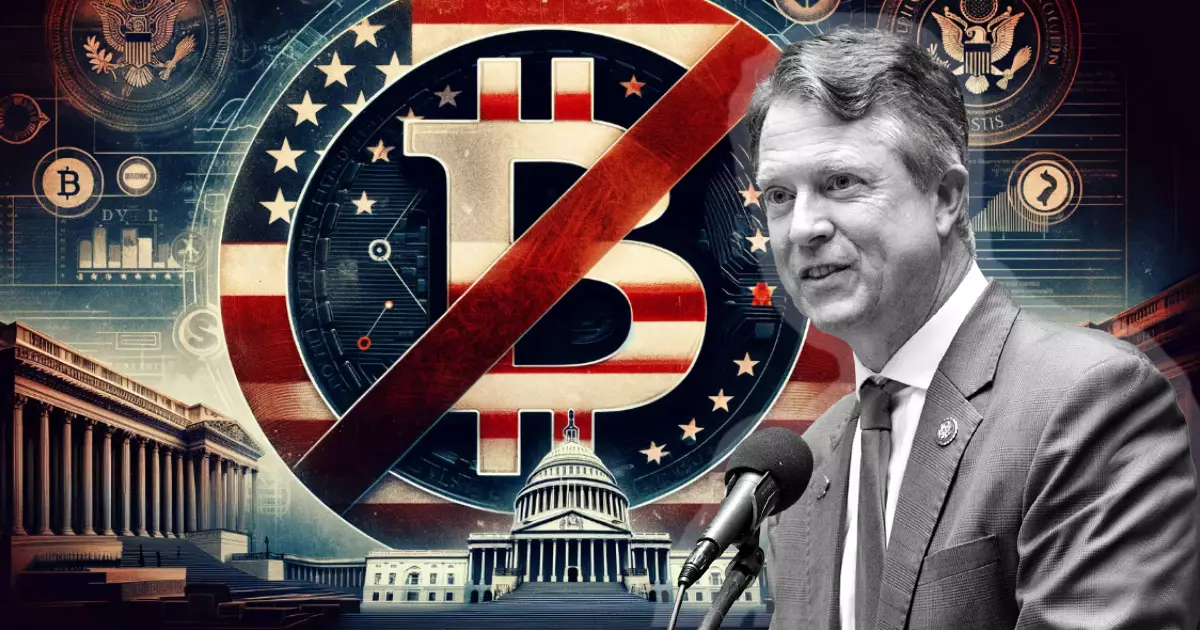U.S. Senator Roger Marshall recently made a surprising revelation, stating that the American Bankers Association played a significant role in formulating the Digital Asset Anti-Money Laundering Act. This legislation, which has drawn steep criticism from the cryptocurrency community, was presented to Marshall and Senator Elizabeth Warren by the Association itself. The admission made by Marshall has sparked outrage and disappointment among crypto stakeholders, highlighting concerns about the influence of traditional financial institutions on the digital asset industry.
One of the prominent voices criticizing the involvement of the American Bankers Association in crafting the Act is Coinbase CEO Brian Armstrong. He expressed his disappointment with lawmakers advocating for banks and emphasized the dissatisfaction among many Americans with the existing financial system. Armstrong also pointed out that opposing cryptocurrencies could be an unwise political move heading into 2024, given the growing popularity and potential of the digital asset industry.
Calls for Transparency and Independence
The disclosure of the American Bankers Association’s involvement in the Digital Asset Anti-Money Laundering Act has raised concerns about the lack of transparency and independence in the legislative process. Critics argue that crafting legislation with the help of the very entities that could potentially be impacted by it raises questions about conflict of interest and favoritism. This incident serves as a reminder of the need for a more accountable and unbiased approach to policymaking, especially in emerging industries like cryptocurrency.
Support from Lawmakers and Wall Street Banks
Despite the controversy surrounding its formulation, the Digital Asset Anti-Money Laundering Act has gained support from various US lawmakers and Wall Street banks. These proponents argue that the bill aims to address existing loopholes and align the digital asset ecosystem with established anti-money laundering and countering the financing of terrorism frameworks. They believe that enhanced regulatory oversight is necessary to ensure the legitimacy and stability of the emerging crypto industry.
Senator Warren’s Anti-Crypto Stance
The revelation about the American Bankers Association’s involvement in the Act comes shortly after Senator Warren’s recent anti-crypto move. In a statement, she criticized crypto companies for allegedly employing former defense and law enforcement officials to lobby against new regulations targeting crypto-financed terrorism. Warren argued that this revolving door between the crypto industry and national security poses a risk. However, her stance has faced severe backlash from the crypto community, with many accusing her of sensationalism and undermining the First Amendment rights of crypto proponents.
Voices from the Crypto Community
Numerous representatives and supporters of the crypto industry have voiced their criticism of both the Digital Asset Anti-Money Laundering Act and Senator Warren’s stance. Mike Novogratz, the CEO of Galaxy Digital, accused Warren of seeking headlines and believed that her intentions have deviated from her initial career trajectory. Pierre Rochard, the Research VP of Riot Platforms, argued that Warren’s statement represents an attack on the First Amendment, asserting the importance of open debate and discourse in the policymaking process.
Another notable figure expressing disappointment is Ripple CTO David Schwartz, who conveyed his anger regarding Senator Warren’s new move. While not directly related to the American Bankers Association’s involvement in the Act, Schwartz’s reaction illustrates the broader frustration within the crypto community towards policymakers who appear to have limited understanding or appreciation for the potential of digital assets.
The revelation that the American Bankers Association played a significant role in crafting the Digital Asset Anti-Money Laundering Act has ignited criticism and raised questions about the legislative process. The involvement of traditional financial institutions in formulating regulations for the emerging cryptocurrency industry has drawn backlash from stakeholders, who argue for transparency, independence, and unbiased policymaking. The Act’s supporters, on the other hand, believe that enhanced regulatory oversight is necessary to align the digital asset ecosystem with existing anti-money laundering frameworks. The controversy surrounding this legislation, along with Senator Warren’s anti-crypto stance, underscores the challenges of navigating the intersection between traditional finance and the rapidly evolving world of cryptocurrencies.
















